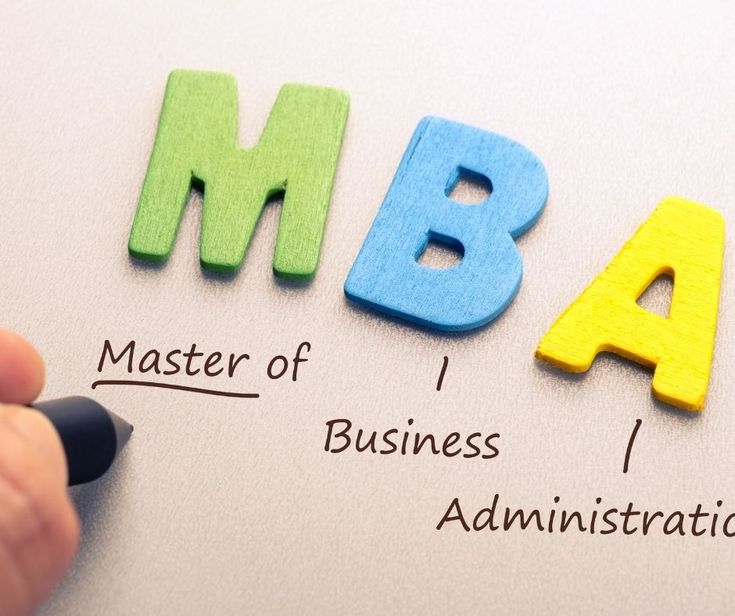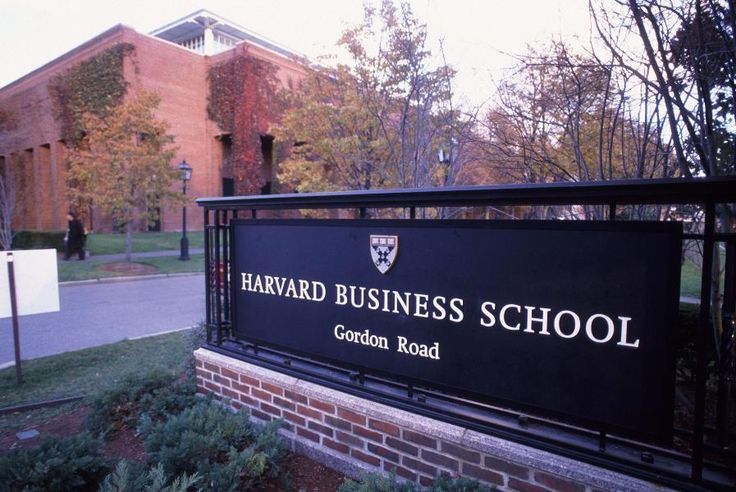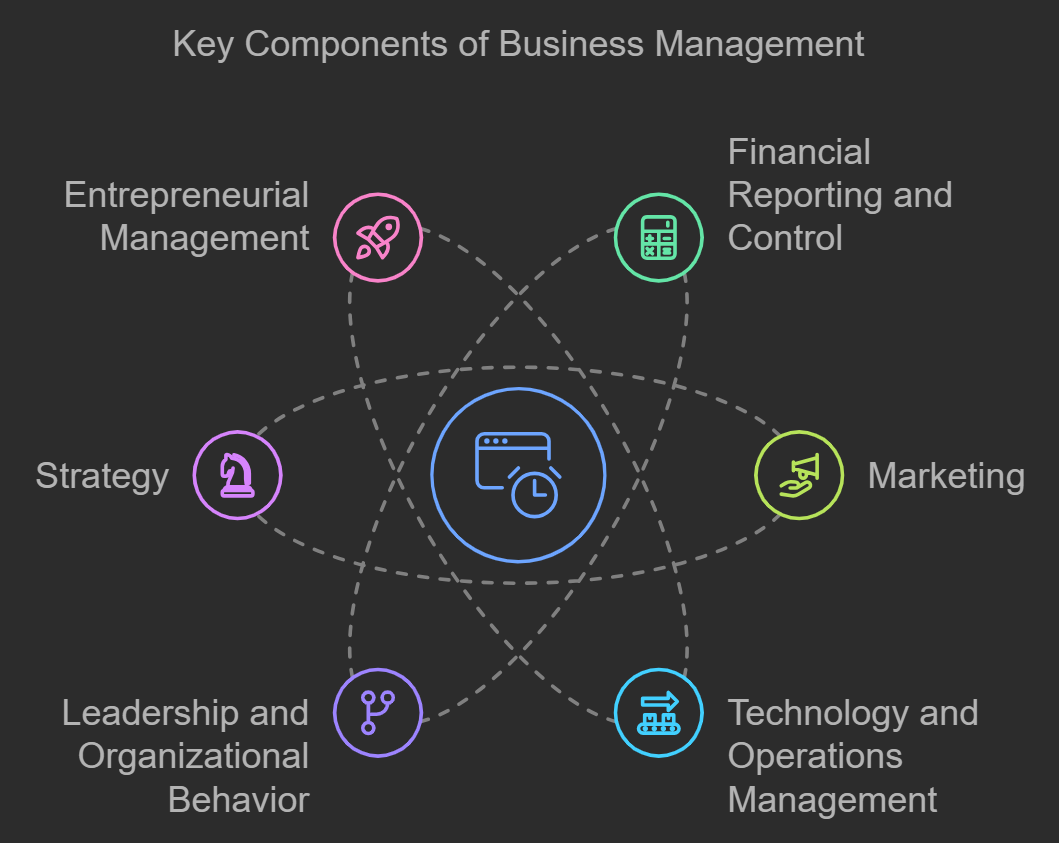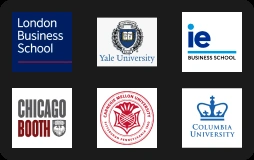
Deferred MBA Programs
Deferred MBA: Everything You Need to KnowDeferred MBA programs are becoming increasingly p…
Table of Contents

Are you wondering if the Harvard MBA is worth the investment? Known as one of the most prestigious MBA programs in the world, Harvard Business School (HBS) consistently ranks among the top choices globally. Its reputation for producing influential business leaders and its rigorous curriculum make it a dream school for many. But is it the right choice for you?
When it comes to selecting an MBA program, making an informed decision is crucial. With high tuition fees and a competitive admissions process, it’s important to understand whether the Harvard MBA aligns with your career goals and aspirations. Let’s dive deeper into what makes this program so unique.
Curious about how the Harvard MBA is structured? The program is designed to offer a comprehensive, leadership-focused business education. Here’s what you need to know:
The Harvard MBA is a full-time, two-year program, offering students an immersive experience with a curriculum that emphasizes both foundational knowledge and leadership development. Unlike many other business schools, HBS does not offer a part-time or online MBA option. However, they do offer the Harvard Executive MBA (EMBA) for mid-career professionals who are seeking leadership roles while continuing to work.
The first year consists of core courses that provide a solid foundation in various business disciplines like finance, marketing, and strategy. In the second year, students can choose from a wide range of electives, allowing them to tailor their MBA experience based on their career goals. Throughout the program, the case method is a core teaching approach, putting students in real-world business situations where they need to analyze, decide, and lead.
This structure ensures that graduates are prepared to face complex business challenges and lead with confidence.
Here’s a table that summarizes the Harvard MBA Program Overview:
Program Aspect | Details |
| Program Format | Full-time, two-year program |
| Structure | First Year: Required Curriculum (core courses) Second Year: Elective Curriculum (specialized courses) |
| Part-time Options | Not available |
| Executive MBA (EMBA) | Available through Executive Education programs (for mid-career professionals) |
| Duration (Full-time MBA) | 2 years |
| Duration (Executive MBA) | Varies, designed for working professionals |
| Teaching Method | Case method, real-world business applications |
Curious about who you’ll be learning alongside at Harvard? The class profile at Harvard Business School reflects a blend of exceptional talent and diversity from across the globe:
Class Size: ~930 students
Gender Diversity: 44% of the class are women, ensuring a balanced and inclusive environment.
International Students: About 37% of students come from over 70 different countries, bringing varied perspectives.
Work Experience: Most students have 4-5 years of work experience across various industries, ranging from consulting and finance to tech and healthcare.
Average GMAT Score: 730, making it highly competitive.
Average GPA: 3.70 (on a 4.0 scale), showcasing academic excellence.
Industry Backgrounds: Common industries include finance, consulting, technology, healthcare, and nonprofits.
Class Profile (2024) | Data |
| Class Size | ~930 |
| Women | 44% |
| International Students | 37% |
| Average GMAT Score | 730 |
| Average GPA | 3.70 |
| Average Work Experience | 4-5 years |
| Top Industries | Consulting, Finance, Tech, Healthcare |
The class diversity ensures that you will gain insights from a wide range of experiences and cultural backgrounds, adding immense value to the learning experience at Harvard.
One of the standout features of the Harvard MBA is its renowned case method of teaching. So, how does it work?
Instead of traditional lectures, students dive into real-world business challenges, analyzing and debating case studies drawn from actual companies and industries. The goal is to build strong decision-making and leadership skills through dynamic classroom discussions. Here’s why the case method is so impactful:
Real-World Application: Students are placed in the role of decision-makers, tasked with solving complex business problems.
Classroom Engagement: Everyone is expected to participate actively, defending their analysis and decisions while learning from peers.
Skill Development: The method focuses on leadership, critical thinking, and problem-solving—skills that are crucial for success in today’s business world.
At HBS, the case method is not just about learning; it’s about transforming the way you think and lead.

How tough is it to get into Harvard Business School? Well, with an acceptance rate of around 10%, the Harvard MBA is one of the most competitive programs in the world. But what exactly does Harvard look for in an applicant, and how can you stand out in the crowded pool of applicants?
Here’s what you need to know about the admission process:
Acceptance Rate: Around 10%
Average GMAT Score: 730
Average GPA: 3.70
Work Experience: Applicants typically have 4-5 years of experience in industries like consulting, finance, tech, and healthcare.
What makes a competitive applicant? Harvard values not just academic excellence but also leadership potential, demonstrated impact, and unique perspectives. Strong communication skills, a clear vision for the future, and the ability to contribute to the HBS community are key.
Additionally, Harvard’s application process involves a holistic review, meaning they take a deep dive into your personal story, leadership qualities, and career trajectory. Excelling in the essays and performing well in the interview are crucial components of building a compelling application
Admission Stats | Data |
| Acceptance Rate | ~10% |
| Average GMAT Score | 730 |
| Average GPA | 3.70 |
| Work Experience | 4-5 years |
| Application Components | GMAT/GRE, Essays, Resume, Interviews |
How does Harvard stack up against other top MBA programs? When it comes to reputation, Harvard Business School is almost always ranked among the top MBA programs worldwide. Whether you look at Financial Times, QS World University Rankings, or other major publications, HBS consistently earns a top spot.
Rankings: Harvard is ranked #1 in the QS Global MBA Rankings 2024 and regularly appears in the top 3 across most global rankings.
Global Reputation: Harvard’s alumni network includes CEOs, world leaders, and top entrepreneurs, reinforcing its status as a powerhouse for business education.
Comparison with Other Schools: While schools like Stanford, Wharton, and INSEAD are also strong contenders, Harvard stands out for its case method, global alumni network, and strong career outcomes.
Why does this ranking matter? Not only does it reflect the quality of education, but it also impacts your career prospects, as employers around the world recognize and value a Harvard MBA.
Curious about what you’ll actually study in the Harvard MBA? The program is designed to give students a strong foundation in business principles during the first year, followed by a customizable second year that allows for specialization. Let’s break it down:
First Year – Required Curriculum (RC):
In the first year, all students take the same courses to build a strong foundation in key areas of business. These include:

The case method is the primary teaching style, encouraging students to apply their knowledge in real-world business scenarios.
Second Year – Elective Curriculum (EC):
In the second year, you have the freedom to choose from over 100 electives based on your career interests. You can also cross-register for courses at other Harvard schools, such as the Kennedy School or Law School.
Wondering how to customize your Harvard MBA? In the second year, you can dive deeper into areas that align with your career goals. Popular electives include:
Year | Curriculum |
| First Year (RC) | Core courses on finance, marketing, leadership, strategy, etc. |
| Second Year (EC) | Electives such as Finance, Entrepreneurship, Global Strategy, Healthcare, etc. |
The second year also offers opportunities for field studies, independent research, and global immersions, allowing you to gain hands-on experience in real-world business environments.
The big question: How much does a Harvard MBA cost, and what financial aid options are available?
Tuition Fees: For the class of 2024, the total cost of the MBA program is approximately $76,000 per year, which includes tuition, books, and course materials.
Living Expenses: Depending on your lifestyle, living expenses in Boston can range between $30,000-$35,000 per year, covering housing, food, and personal expenses.
Total Cost: The total cost, including tuition and living expenses, could reach $110,000 - $120,000 annually.
But don’t worry if the costs seem steep—Harvard offers several ways to help you finance your education:
Scholarships: Harvard provides need-based scholarships, with an average award of $40,000 per year.
Loans: Many students also rely on loans to cover the remaining costs. Harvard partners with several financial institutions to offer favorable loan options, including some specifically for international students.
Expense Category | Estimated Cost (2024) |
| Tuition | $76,000/year |
| Living Expenses | $30,000 - $35,000/year |
| Total Annual Cost | $110,000 - $120,000/year |
| Average Scholarship | $40,000/year |
What can you expect after completing your MBA at Harvard? Let’s talk jobs, salaries, and career growth:
Average Starting Salary: Harvard MBA graduates have an average starting salary of $175,000, with additional bonuses often pushing total compensation higher.
Top Recruiters: Consulting firms like McKinsey & Company, investment banks like Goldman Sachs, and tech giants like Google are just a few of the top employers that actively recruit Harvard MBA graduates.
Industries: The most popular industries for Harvard MBAs are consulting, finance, technology, healthcare, and private equity.
One of the biggest advantages of the Harvard MBA is its vast alumni network, which consists of over 85,000 alumni worldwide. Whether you need advice on career decisions, business partnerships, or just expanding your professional circle, the Harvard network is always within reach.
Harvard also provides lifetime access to career services, which helps graduates continue to advance in their careers even years after they’ve left the program.
Ready to apply for the Harvard MBA? The application process is rigorous and requires thoughtful preparation. Here’s a breakdown of what you can expect:
Application Components:
The Harvard MBA application consists of:
GMAT/GRE Scores: A competitive GMAT score (~730 average) is common, though some applicants opt for the GRE.
Essays: A single, open-ended essay prompt that allows you to showcase your leadership and future goals.
Resume: A one-page document summarizing your professional experience and achievements.
Letters of Recommendation: Typically two, highlighting your leadership potential and work ethic.
The Harvard MBA essay is famous for being open-ended, which can make it tricky. The prompt usually asks something like, "What more would you like us to know as we consider your candidacy for Harvard Business School?"
Here’s how to approach it:
Focus on Leadership: Harvard is looking for leaders, so make sure your essay highlights your leadership roles and the impact you've made in your career.
Be Authentic: This is your chance to show the admissions committee who you really are. Don’t just list accomplishments—talk about your personal journey, values, and aspirations.
Align with Harvard's Values: Research what Harvard values in its candidates (leadership, impact, and a desire to contribute to society) and show how you embody those qualities.
When writing about your accomplishments, think about moments where you demonstrated leadership, problem-solving, or innovation. Discuss how these experiences shaped your growth and how they align with your future goals at Harvard.
Harvard also wants to know what your future plans are. Use this part of the essay to explain how the MBA will help you achieve your career aspirations and how you plan to contribute to the Harvard community. Be specific about your goals and why Harvard is the right place to achieve them.
Getting an interview invite is a big deal, but the real challenge is impressing the interview panel. Here are some tips:
Know Your Story: Be prepared to explain your resume, your career choices, and your goals clearly.
Leadership Focus: Many of the questions will center around your leadership experiences, so have concrete examples ready to discuss.
Be Yourself: While it’s important to be prepared, don’t over-rehearse. Harvard values authenticity.
With such a competitive pool of applicants, standing out is critical. Here’s how you can make your application unique:
Show Your Impact: Harvard values candidates who have made a real impact in their previous roles. Be sure to highlight projects or initiatives where you’ve made a measurable difference.
Emphasize Leadership: Whether at work, in extracurricular activities, or in your personal life, emphasize how you’ve taken on leadership roles.
Demonstrate Self-Awareness: Harvard looks for applicants who are reflective and self-aware. Don’t be afraid to discuss challenges you’ve faced and how they’ve shaped you.
In a competitive environment like Harvard, building a strong personal brand is key. Make sure your application clearly communicates who you are, what you stand for, and how you’ll contribute to the Harvard community.

How does the Harvard MBA compare to other top programs like Wharton, Stanford, and INSEAD? Choosing the right MBA program involves looking at several factors, such as curriculum, teaching style, career opportunities, and even the culture of the school. Here’s a comparison to help you decide:
Curriculum: Harvard’s curriculum is heavily focused on the case method, where students analyze real-world business problems. While Wharton and Stanford also use case studies, they combine it with more traditional lecture-based learning. INSEAD offers an intense, one-year program, compared to Harvard’s two-year structure, which provides more time for internships and networking.
Specialization Options: Stanford is known for its focus on innovation and entrepreneurship, while Wharton excels in finance. Harvard, however, provides a broader general management education, preparing students for leadership roles across industries. INSEAD, on the other hand, has a strong international focus, with campuses in Europe, Asia, and the Middle East.
Global Reach: All four schools have strong global reputations, but Harvard’s alumni network is particularly vast, spanning over 85,000 alumni across various industries and countries. This can be a key advantage when it comes to career opportunities and networking.
Culture: Harvard prides itself on fostering a collaborative, leadership-driven culture. Stanford, located in Silicon Valley, emphasizes innovation and tech-driven solutions, while Wharton is more finance-oriented. INSEAD is highly international, with a focus on cross-cultural understanding.
School | Key Strengths | Program Length |
| Harvard | Leadership, General Management, Case Method | 2 years |
| Wharton | Finance, Quantitative Rigor | 2 years |
| Stanford | Entrepreneurship, Innovation | 2 years |
| INSEAD | International Focus, One-Year Program | 1 year |
Is a Harvard MBA worth the investment? Let’s break down the costs and the potential return:
Total Costs: As we mentioned earlier, the total cost for a Harvard MBA, including tuition and living expenses, is around $110,000 - $120,000 per year. Over two years, you’re looking at an investment of roughly $220,000 - $240,000.
But what do you get in return for this significant investment?
Average Starting Salary: Harvard MBA graduates enjoy an average starting salary of $175,000 per year, not including bonuses and other perks. Over time, this salary can increase significantly, with many graduates landing in senior management or leadership roles.
Networking Opportunities: The value of the Harvard network cannot be overstated. With access to a global alumni base and a wide range of industries, you’ll have support throughout your career.
Career Growth: Harvard MBA graduates typically see rapid career progression, with opportunities to move into executive roles within a few years of graduation.
Investment | Potential Return |
| Total Cost (2 years) | $220,000 - $240,000 |
| Average Starting Salary | $175,000 |
| Salary Growth | Significant growth over time |
| Networking | Global alumni network |
So, is it worth it? If you’re aiming for top leadership positions or want access to the best career opportunities, a Harvard MBA can provide a strong return on investment.
What sets the Harvard MBA apart from other programs? It’s not just the brand name—it’s the experience and opportunities you gain:
Case Method: The case method is a defining feature of HBS, providing practical, real-world learning and decision-making experience. You’ll be placed in scenarios where you have to analyze, debate, and defend your solutions.
Leadership Focus: HBS is deeply focused on leadership development. Whether through courses, extracurricular activities, or interactions with classmates, the program pushes you to become a more effective and visionary leader.
Global Alumni Network: As mentioned earlier, the Harvard alumni network is one of the largest and most influential in the world. Wherever you go, you’ll find Harvard connections ready to help.
Prestige and Recognition: A Harvard MBA is recognized globally, opening doors to opportunities in virtually every industry. Whether you’re aiming for a role in finance, tech, consulting, or non-profit work, the Harvard name carries significant weight.
So, how do you start preparing for one of the most prestigious MBA programs in the world? Applying for the Harvard MBA requires thoughtful planning and preparation. Here are the key steps to help you build a strong application:
Start Early: Harvard’s admissions process is highly competitive, and building a compelling application takes time. Ideally, you should start preparing at least 12-18 months before the application deadline. This will give you enough time to research the program, work on your GMAT/GRE scores, write essays, and gather recommendations.
Research the Program: Understanding the unique features of the Harvard MBA—such as the case method and its emphasis on leadership development—can help you tailor your application. Speak with current students or alumni to gain insights into the program culture and expectations.
Work on Your GMAT/GRE Scores: Aim for a GMAT score of 730 or higher to remain competitive. If you prefer taking the GRE, ensure your scores are within the equivalent range. If your scores are lower, consider retaking the test to improve your chances.
Build a Strong Resume: Your resume should highlight leadership roles, professional achievements, and community involvement. Make sure to quantify your impact (e.g., “led a team of 10 and increased sales by 20%”) to showcase measurable success.
Write Powerful Essays: The essays are a critical part of your application. Focus on highlighting your unique story, your leadership journey, and your vision for the future. Be sure to align your aspirations with what Harvard values in its applicants—leadership, impact, and a desire to contribute to society.
One of the best ways to strengthen your application is by networking with Harvard alumni and current students. These conversations can give you valuable insights into the program and help you tailor your application. Here’s how to get started:
Join Webinars and Events: Harvard often hosts online events and in-person info sessions. Attending these will give you a chance to connect with admissions officers, alumni, and current students.
Reach Out on LinkedIn: Don’t hesitate to connect with alumni on LinkedIn. Most Harvard alumni are happy to share their experiences and offer advice.
Ask for Advice: When networking, ask for advice on how to craft a strong application, what to emphasize in your essays, and how to make the most of the Harvard MBA experience.
Here are some helpful resources to guide you through the Harvard MBA application process:
Official Harvard Business School Website: HBS MBA Program
Financial Aid & Scholarships: Harvard MBA Scholarships
Application Deadlines and Requirements: HBS MBA Application Information

So, is the Harvard MBA the right choice for you? If you’re looking for a program that focuses on leadership, offers a global network, and provides access to top career opportunities, Harvard is definitely worth considering. The investment is significant, but the potential return—both in terms of career growth and personal development—is equally high.
Ultimately, the decision comes down to your goals, readiness for the challenge, and alignment with the Harvard MBA’s values of leadership, impact, and making a difference in the world.
Ready to take the next step toward your dream MBA? At MastersBuddy, we specialize in helping students like you get into top programs like the Harvard MBA. Whether you need personalized essay guidance, resume optimization, or interview prep, our team of experts—who’ve been through the process themselves—are here to guide you every step of the way.
Don’t leave your MBA application to chance. Get in touch with MastersBuddy today for a free consultation, and let’s make your Harvard dream a reality!

